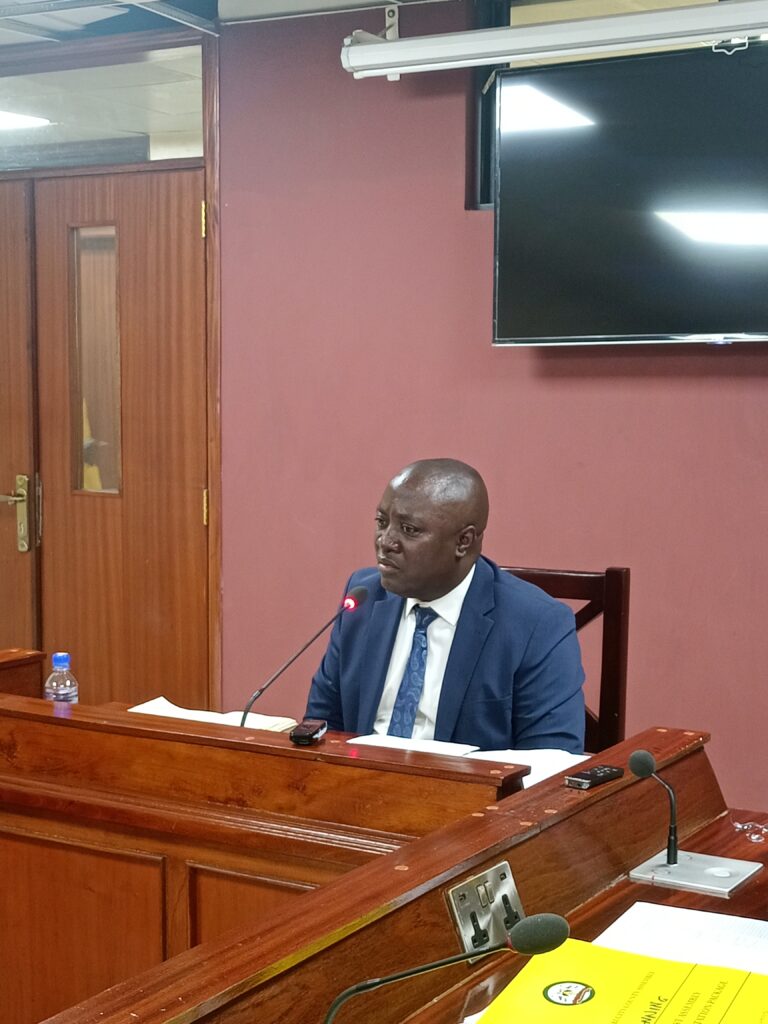Shock as Junior City Hall Staff Overrule Chief Officers

- The planning department has many interests and challenges. There are some officers you cannot transfer or even discipline because of interests – says Analo.
Low-cadre employees in the department of Urban Development and Planning at City Hall have assumed inherent superiority over their bosses.
The employees are untouchable and cannot be transferred or subjected to disciplinary action by the county chief officers because of intrinsic powers they wield.
These intriguing revelations were laid bare by the new Chief Officer for Urban Development and Planning, Mr Patrick Analo on December 22, 2022 when he appeared before Nairobi County Assembly sectoral committee on Lands, Planning and Housing for approval hearing.
A question begs, where the low cadre officers draw such immense power to such levels of insubordination and disobedience towards their departmental heads.
A senior official at City Hall who sought anonymity told The Times the matter had a lot to do with external protection by influential politicians, shrewd land barons and some rich property developers in the capital city.
Mr Analo previously served as the Deputy Director of Development Control under the Nairobi Metropolitan Service (NMS) regime prior to his new appointment by Governor Johnson Sakaja.
“The planning department has many interests and challenges. There are some officers you cannot transfer or even discipline because of interests”, said Analo.
The chief officer alluded to cases of underhand processes done in the department as some of the reasons behind cases of insubordination.
However, Mr Analo is emphatic that he will effectively deliver on his mandate with the support of the House committee and officers in the department he now heads.
“We will be requesting for your support as a Committee and the Assembly where there is need to ensure we sanitize the place, open the shop fully and drain the swamp”, he said.
Mr Analo pointed out that over the years, the county government had operated without requisite policies that were vital for steering proper urban planning and development in Nairobi City.
He noted that over the last two years, the department had come up with four policies, three of which were lying at the county assembly for approval while one was at drafting stage by the county legal experts.

Among the new policies, is the Nairobi Land Use Policy, which is awaiting approval by the Assembly. The is intended to protect and secure land set aside for development of public utilities including nursery and primary schools as well as health facilities.
Such land, Analo noted, had in the past been irregularly subjected to change of use to develop churches or private commercial buildings, thus denying the growing city population necessary public facilities in their neighborhood.
“As we seek to modernize our city, we have also come up with the – Property Addressing and Street Naming Policy”.
Mr Analo says his policy is at the Assembly and once approved, the County government will number all buildings in the CBD, name all roads in the residential areas and computerize the information in a database.

“This policy will ease navigation by police on security operations, provision of emergency services by medics including evacuation and fire brigade services”, Analo told the House committee.
He explained that although some settlements in the city were not well planned, it would still be necessary under this policy to have clear indications marked out in those areas for ease of location whenever need arose.
The third one is the Development Control Policy which Analo says is the most crucial and technical policy in the capital city.
“Currently, we make decisions based on discretion and at times if they are challenged in court, one has to really struggle as a professional to justify the decisions that were made”, says the County chief officer for planning.

Mr Analo appealed to the House Planning committee to expedite the approval of the policies because they were vital instruments on land matters in Nairobi county.
He pointed out that as a head start, Nairobi Physical Land Use Policy Planning Liaison Committee had been set up as recommended by the Physical Land Use Act.
The Committee is established to administer dispute resolution on grabbed public utility land or even land which is privately owned.
“It is a quasi judicial committee that hears such matters to render verdicts which are legally binding”, he said, adding that when put to full use, it would reduce the lengthy court cases.
He added that so far, the arbitration committee had returned verdicts on 16 matters that were brought before it.





